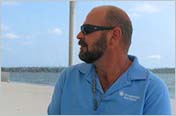At The American Theatre of Actors, artistic success is measured largely by the ability to present credible performances of a broad range of socially significant plays and musicals, each authored by writers of note, both past and present.
This policy is the theatre’s daily bread, and has been a central element of its unique mission since its founding in 1976 by President and Artistic Director, playwright James Jennings, who remains at the company’s helm.
Currently, the theatre’s Classical Revival Series features side-by-side presentations of Shakespeare’s HAMLET and, for the first time in many years for New York audiences, Seneca’s PHAEDRA.
At the opening performance of PHAEDRA, the dramatic poetry of Seneca’s tragedy rang out to great effect, and made a strong case for continuing the revival of Seneca’s plays.
The heir-apparent to Aeschylus, Sophocles, and Euripides, Seneca is known to us now primarily as one of the most eloquent Stoic philosophers.
In PHAEDRA, he serves up not only a finely tooled lyric drama, but the vivid illustration of a central tenet in Stoic philosophy: man cannot control circumstances, but the man of honor can control his response to them.
Seneca goes one step further than the Greeks, giving each character in PHAEDRA their self-discovery (anagnosis) and redemption (catharsis). No one is an uninvolved observer/commentator. Everyone participates in the tragedy at their own level.
The result is the dark glow of a mosaic whose pieces reflect the variety of human responses to the same shocking and senseless circumstances: the horrific death of a wronged innocent, caused by the evil of one person, the complicity of another, and the misplaced anger of a third.
The hinge of the play, the pinnacle event upon which any presentation of PHAEDRA rises or falls, is a riveting scene in which Phaedra (Carla Seet), in her husband’s absence, confesses to her stepson Hippolytus (Alexander Zuccaro) the unbearably consuming heat of her adulterous passion for him, and is summarily rejected by him.
The Nurse (Emmy Potter), in league with her mistress, has already unsuccessfully attempted to corrupt Hippolytus’ virtue.
As rendered by Zuccaro, Hippolytus is every inch the princely hero, heroically mastering his murderous outrage at Phaedra’s unwanted and criminal advances, establishing himself firmly as the noble centerpiece of the tragedy. Seneca’s exquisite plot twist – the ultimate decision of Hippolytus not to kill Phaedra but to seek his own, further, purification - is more than a surprising coup-de-theatre, it is one of the finest moments in Classical Theatre, and an ultimate illustration of the purest Stoic philosophy.
The trio of actors was equal to the exceptional demands of this scene, and each more than rose to the occasion. Soulfully rendered by Seet, Potter, and Zuccaro, this harrowing extended moment made a heart-stoppingly indelible impression as it led to the play’s ghastly denouement – the murder of Hippolytus and the suicide of Phaedra. Indeed, a number of the assembled audience seated near this writer were visibly uncomfortable as the inevitable events unscrolled. Mission accomplished.
The presentation of PHAEDRA at The American Theatre of Actors was staged by John DeBenedetto with a simplicity and welcome lack of bombast that allowed the play to speak for itself.
All members of the cast, Carla Seet (Phaedra), Emmy Potter (The Nurse), Alexander Zuccaro (Hippolytus), Sam Hardy (The Citizen), Richard Fisher (Theseus), William Buehler (The Messenger), and Rafael Flores (The Companion), deserve high raise for their unified ensemble effort, their unflagging respect for the script, their mammoth memorization and interpretation of the exceptionally long monologues and, above all, their tireless efforts to bring the words of the playwright to life.
In Classical Theatre, vocal quality is essential and non-negotiable. As Vincenzo Bellini said, “The sound of the voice announces the character.”
Three of the PHAEDRA actors were standouts in this regard. Sam Hardy, Emmy Potter, and Alexander Zuccaro all possess sonorous, colorful, and strong vocal instruments that are well enough schooled and easily enough produced to withstand the rigors of Seneca’s demands, while conveying the nuances of the tragedy with consistency and apparent ease.
The American Theatre of Actors has scored another win with this presentation of Seneca’s PHAEDRA, significantly augmenting the already long list of plays supporting its stated purpose of presenting theatre of moral and ethical significance.
The ATA has given performance opportunities to more than 11,000 actors during its 46-year tenure, a good number of whom went on to achieve careers of the first rank: Bruce Willis, Danny Aiello, Dennis Quaid, Edie Falco, Katherine Hahn, and Chazz Palmintieri come immediately to mind.
If the reader has discretionary funds earmarked for The Arts, may I suggest making a tax-deductible contribution to The American Theatre of Actors through their website: https://americantheatreofactors.org
I would call it a fine investment in literacy and social conscience.
The script used in this presentation of PHAEDRA was for many years published as part of the scholarly bilingual edition of Seneca’s Collected Works in The Loeb Classical Library, and is available to read or download at no cost via Theoi Classical Texts Library: https://www.theoi.com/Text/SenecaPhaedra.html
PHAEDRA speaks in antique language about contemporary challenges: honor, character, loyalty, truth, and self-possession.
Performance schedule and ticket information on the easily navigable ATA website via Eventbrite.
If you can’t go see PHAEDRA, by all means, do read and absorb it.
Let’s hear it for the philosopher/poet!
Let’s go, Seneca!
The American Theatre of Actors 314 West 54th Street NY, NY 10019 212-581-3044
https://americantheatreofactors.org














